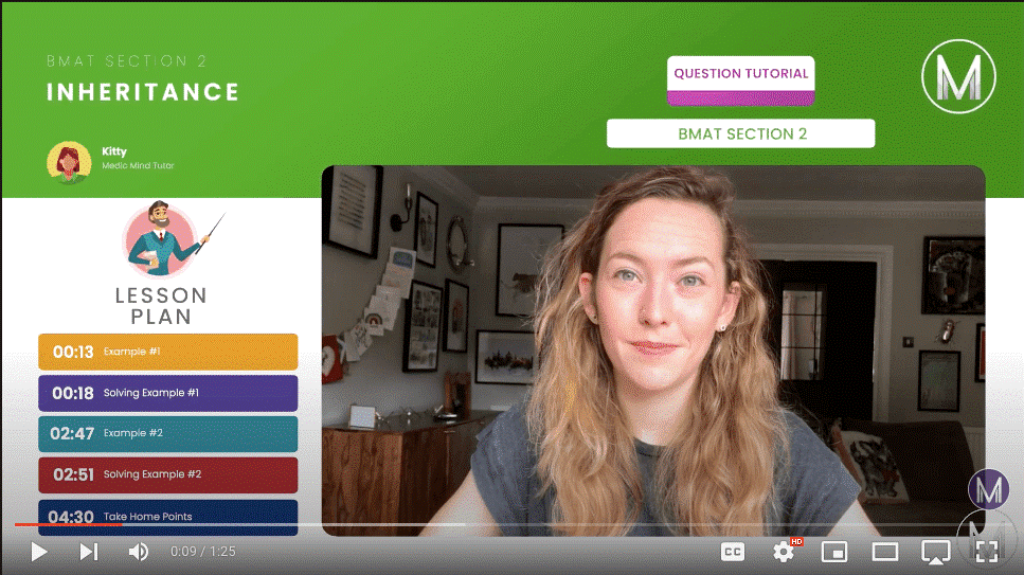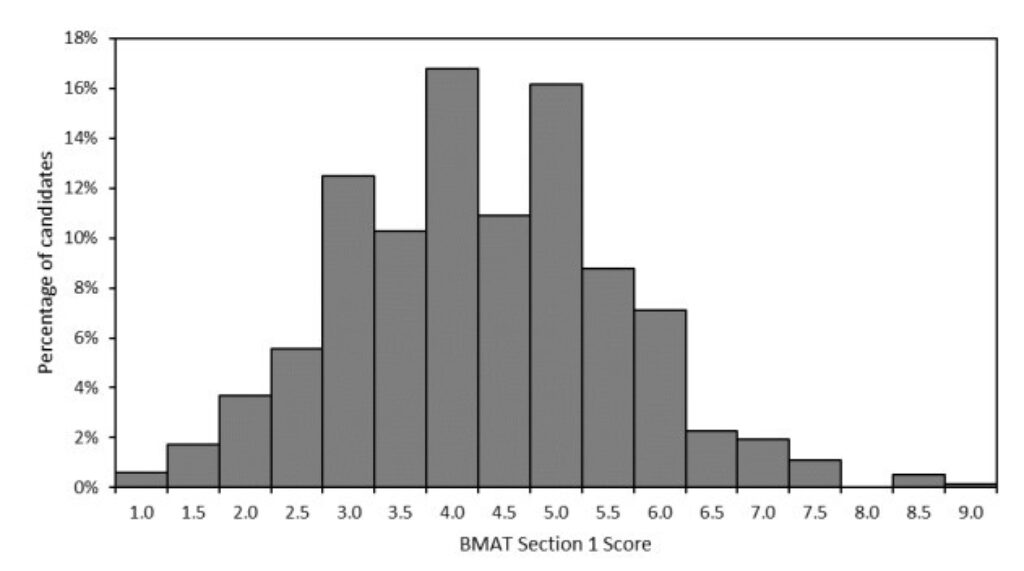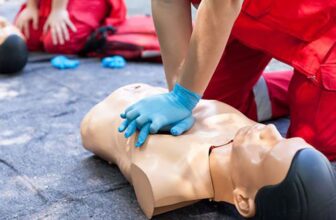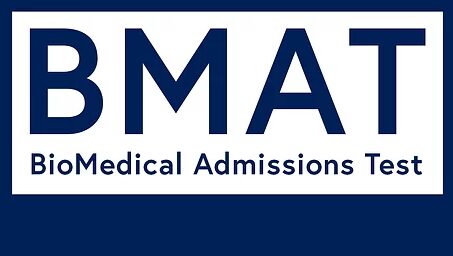
Because the BMAT is designed to assess a wide range of intellectual talents and knowledge, it is not for the timid.
Ambitious medical and biomedical science students who want to work in the healthcare business must clear the challenging Biomedical Admissions Test (BMAT).
Test-takers must successfully navigate a certain set of challenges in order to achieve the desired outcomes.
The BMAT road is full with obstacles that require dedication, perseverance, and careful planning, from mastering complex scientific concepts to honing critical thinking skills and time management techniques.
Table of Contents
BMAT Overview
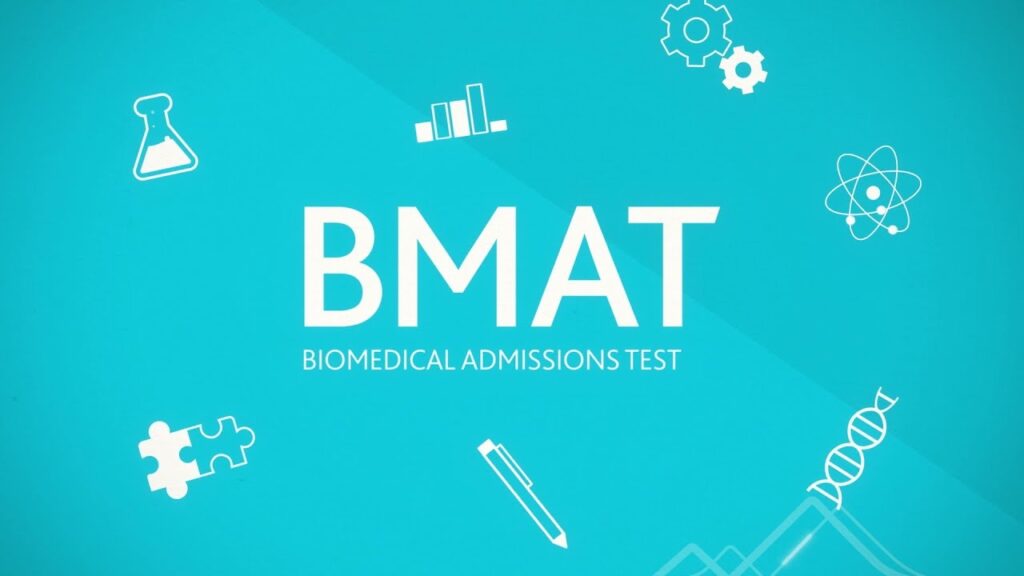
Source: admissionstesting.org
Before exploring the particular challenges that BMAT test takers encounter, it’s critical to comprehend what the BMAT consists of.
A select few prestigious universities, mostly in the UK, use the BMAT as a component of their undergraduate biomedical science and medicine admissions process.
It is divided mostly into three sections:
- Section 1: Aptitude and Skills – Data analysis, critical thinking, and problem-solving abilities are all assessed in this area.
It consists of multiple-choice questions designed to evaluate a candidate’s ability to apply mathematical and scientific knowledge to real-world problem solving. - Section 2: Scientific Knowledge and Application – In Section 2, the candidate’s comprehension of scientific ideas is assessed. Multiple-choice questions spanning arithmetic, physics, chemistry, and biology are included.
- Section 3: Writing Task – In this section, test-takers are required to compose a brief essay about a predefined question. This activity evaluates their ability to explain ideas simply, clearly, and coherently.
After giving the BMAT a general overview, let’s now look at some of the unique difficulties that students frequently encounter when studying for and passing this difficult exam.
Complexity of Scientific Concepts
Learning difficult scientific topics is one of the BMAT’s biggest problems. Examining a candidate’s scientific knowledge and application is the focus of BMAT Section 2.
In this section, which calls for a thorough grasp of biology, chemistry, physics, and mathematics, test-takers frequently run into problems that cover complex subjects.
Questions could, for instance, require detailed physics concepts, organic chemistry processes, or complex genetics.
Students must commit a significant amount of time to learning and reviewing these courses in order to overcome this difficulty.
They should also look for high-quality study materials and tools to make sure they are well-equipped to take on the BMAT’s scientific knowledge part. More information can be found on Medic Mind.
Grooming Critical Thinking Skills
The BMAT is a test of critical thinking and problem-solving abilities rather than merely rote memory.
The purpose of Section 1’s aptitude and skills questions is to assess a candidate’s capacity for logical thought, data analysis, and knowledge application in fresh contexts.
This part frequently requires test-takers to draw inferences or forecast outcomes based on complicated situations that are presented.
For many BMAT applicants, mastering good critical thinking abilities is a substantial obstacle. It calls for repetition and exposure to a variety of problem-solving situations.
Students might benefit from answering practice questions and taking practice exams to better prepare for the BMAT in order to overcome this difficulty.
Moreover, seeking guidance from experienced tutors or mentors can help students hone their critical thinking abilities.
Time Management and Exam Strategy

Source: jafaripub.com
The BMAT is no different from other standardized examinations in that it presents a time management difficulty.
Test-takers must not only answer questions truthfully but also do it within the allotted time for each segment because there is a time restriction.
Poor time management can result in speeding through sections or leaving questions unanswered, both of which have a detrimental effect on results.
Time management that works demands a calculated strategy. Based on their skills and shortcomings, test-takers must decide how much time to devote to each component of the exam.
For instance, a student who excels in physics but finds it difficult to analyze critically could decide to devote more time to Section 1.
Students can manage their time efficiently throughout the BMAT by developing a strong test plan, such as starting with the simpler questions and moving on to the more difficult ones afterwards.
Dealing with the Writing Task
The writing exercise in Section 3 of the BMAT has its own set of difficulties. Participants in this phase of the exam must prepare an organized and succinct essay on the assigned topic.
Even while it might not appear as difficult as the portions that focus heavily on science, writing nonetheless requires a certain set of abilities.
One of the main difficulties in this situation is finding effective ways to communicate complicated ideas in a constrained amount of words.
Essays must be rationally organized, and test-takers must make sure that their ideas are well-supported.
Time management is a common problem for students in this part since they need to allot appropriate time for planning, outlining, writing, and editing their essays.
Regular essay writing practice can help pupils overcome the obstacles presented by the writing assignment.
It may also be quite beneficial to ask professors or tutors for comments in order to develop one’s writing abilities.
Furthermore, reading through example essays and comprehending the standards used to evaluate essays might help you better grasp what the examiners are searching for.
Manage Exam Anxiety
Many test-takers struggle with exam anxiety, and the BMAT is no exception.
A student’s ability to think clearly and perform at their best may be hampered by worry and stress brought on by the pressure to do well on this important test.
Exam anxiety calls for a multifaceted strategy to be addressed. Students who struggle to relax might benefit from practices like mindfulness meditation and deep breathing.
A student is less likely to feel anxious if they feel secure in their knowledge and abilities, which is another benefit of adequate preparation.
In addition, leading a healthy lifestyle that includes sufficient rest, a balanced diet, and regular exercise can help lower general stress levels.
Managing Other Responsibilities and BMAT Preparation
A lot of ambitious medical and biomedical science students find it difficult to juggle BMAT preparation with other academic and personal duties because it is a time-consuming task.
A student’s time and effort are divided among extracurricular activities, part-time employment, and high school curriculum.
For total wellbeing and to prevent burnout, the correct balance must be found. Time management abilities are crucial in this situation, as was already said.
In order to prepare for the BMAT and yet fulfill their other obligations, students should plan their study time accordingly.
Students can also successfully traverse this issue by asking for advice from mentors, parents, or professors.
Last Words
The BMAT is unquestionably a difficult exam that calls for a mix of scientific understanding, critical thinking abilities, efficient time management, and the capacity to control exam anxiety.
These difficulties can appear great, but they are not insurmountable.
With dedication, perseverance, and a well-structured study plan, aspiring medical and biomedical science students can successfully navigate the hurdles of the BMAT course.
It’s critical to keep in mind that the BMAT measures a candidate’s capacity to succeed in the competitive fields of medicine and biomedical science, not just their academic knowledge.
Students may not only ace the BMAT but also become ready for the challenging academic road that lies ahead in their pursuit of a career in healthcare by acquiring a thorough comprehension of scientific principles, sharpening critical thinking abilities, and mastering time management.

